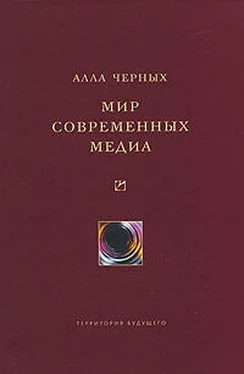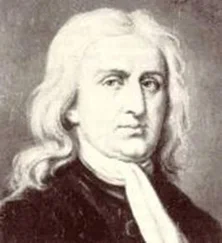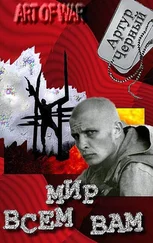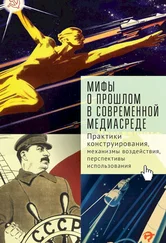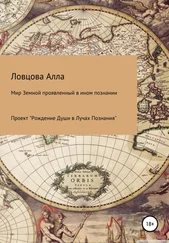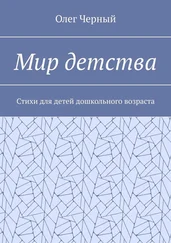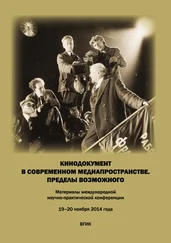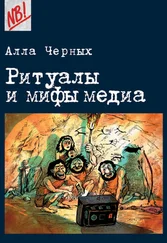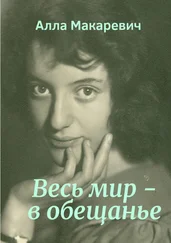Hood S. The Politics of Television // Mc Quail D. (ed.) Sociology of Mass Communications. Harmondsworth, 1972
Hovland C. I., Lumsdaine A. A., Sheffield F. D. Experiements in Mass Communication. Princeton, N. Y.: Princeton University Press, 1949.
Huff D. How to lie with statistics. N. Y.: W. W. Norton, 1954. Inglis F. Media Theory: An Introduction. London, 1990.
Jackall R. (ed.) Propaganda. N. Y: New York University Press, 1995.
Jamieson K. H., Campbell K. K. The interplay of infl uence: News, advertising, politics, and the mass media. Belmont, CA: Wadsworth, 1992.
Janowitz M. The Study of Mass Communication // International Encyclopedia of the Social Sciences. Vol. 3. N. Y: Macmillan and Free Press, 1968.
Jensen K. B., Jankowski N. W. (eds.) A Handbook of Qualitative Methodologies for Mass Communication Research. London: Routledge, 1991.
Jones J. M. Prejudice and racism (2nd ed.) N. Y: McGraw-Hill, 1997.
Journalism. Theory, practice and criticism/Ed. by M. Bromley, H. Tumbler, B. Zelizer. 2000, № 1.
Kang N., Choi J. H. Structural implications of the crossposting Network of International News in cyberspace // Communication Research. 1999. Vol. 26. № 4. (August).
Katz E., Lazarsfeld P. Personal Infl uence. Glencoe, Ill.: Free Press, 1955.
Katz E., Szecsko T. (eds.) Mass Media and Social Change. London: Sage, 1981.
Katz Е. The End of Journalism? Notes on Watching the War // Journal of Communication. 1992. № 42 (3).
Keane J. The Media and Democracy. Cambridge: Polity Press, 1990.
Kellner D. Media Culture. Cultural Studies, Identity, and Politics between Modern and Postmodern. London and N. Y.: Routledge, 1995.
Kellner D. Baudrillard: A Critical Reader. Oxford: Basil Blackwell, 1994.
Kent R. (ed.) Measuring Media Audiences. London: Routledge, 1994.
Kinnick K. N., Krugman D. M., Cameron G. T. Compassion Fatigue: Communication and Burnout toward Social Problem // Journalism and Mass Communication Quarterly. 1996. Vol. 73. № 3 (Autumn).
Klapper T. The Effects of Mass Communication. Glencoe, Il.: Free Press, 1960.
Kollock P. The Economies of on-line cooperation: Gifts and public goods in cyberspace // Communities in cyberspace/Ed. by P. Kollock, M. A. Smith. London, N. Y: Routledge, 1999.
Kollock P., Smith M. A. Communities in cyberspace: Introduction // Communities in cyberspace/Ed. by P. Kollock, M. A. Smith. N. Y.: Routledge, 1999.
Kraus S. Televised presidential debates and public policy. Hillsdale, N. Y: Lawrence Eribaum Associates, 1988
Kubey R. Television and the quality of life: How viewing shapes everyday experience. Hillsdale, N. Y: Lawrence Eribaum Associates, 1992.
Labоv W. Language in the Inner City. Philadelphia: University of Pennsylvannia Press, 1972.
Labov W. Speech actions and reactions in personal narrative // Tannen D. (ed.). Analyzing Discourse: Text and Talk. Washington, dc: George Town University Press, 1982.
Laclau E., Mouffe C. Hegemony and Social Strategy: Towards a Radical Democratic Politics. London: Verso, 1985.
Laclau E. The populist Reason. London: sage, 2003.
Larrain J. Ideology and Cultural Identity: Modernity and the Third World Presence. London: Polity Press, 1994.
Larsen O. N. (ed.) Violence and Mass Media. N. Y, London: Harper & Row, 1968.
Lasswell H. D. The structure and function of comminication in society // Brison A. (ed.) The Communication of Ideas. N. Y.: Harper & Brothers, 1948.
Lasswell H. Propaganda // Jackall R. (ed.) Propaganda. N. Y.: New York University Press, 1995.
Lazarsfeld P., Berelson B., Gaudet H. The People’s Choice: How the Voter Makes Up His Mind in a Presidential Election. N. Y: Colambia University Press, 1948.
Lazarsfeld P. F., Merton K. Mass Communication, popular taste and organized social action // Brison A. (ed.) The Communication of Ideas. N. Y: Harper & Brothers, 1948.
Lenart S. Shaping Political Attitudes. The Impact of Interpersonal Communication and Mass Media. Sage publications, 1994.
Levy P. L’Intellegence collective: pour un fnthropologie du cyberspace. Paris: La Decouverte, 1994.
Liebes T., Katz E. The Export of Meaning: Cross-Cultural Reading of «Dallas». Cambridge; Oxford: Polity Press, 1988.
Lindlof T. R. Qualitative Communication Research Methods. Sage publications, 1995.
Lippman W. Public Opinion. N. Y: Harcourt Brace, 1922 (русск. пер.: Липпман У Общественное мнение. М.: Институт Фонда «Общественное мнение», 2004).
Livingston S. Why people watch soap opera: an analysis of the explanations of British viewers // European Journal of Communication. 1988. № 31 (1).
Lowery S., DeFleuer M. Milestones in Mass Communication Research. Media Effects. 3 ed. N. Y: Longman, 1995.
Luhmann N. The Concept of Society // Thesis 11. 1992. № 31.
Lull J. World Families Watch Television. London; Thousand Oaks; New Delhi: Sage, 1987.
McBride S. et al. Many Voices, One World. Report by the International Commission for the Study of Communication Problems. Paris: unesco; London: Kogan Page, 1980.
Martin R., Miller T. (eds.) SportCult.University of Minnesota Press, 1999.
Martin-Barbero J. Communication, Culture and Hegemony: From Media to Mediations. London; Newbury Park; New Delhi: Sage, 1993
Mattelart A. Multinational Corporations and the Control of Culture. Sussex: Harvester Press, 1979.
Mattelart A., Mattelart M. Theories of Communicatiom. A Short Introduction. London: Sage Publications, 1998.
Maynard D. W. Language, Interaction and Social Problems // Social Problems. 1988. Vol. 35.
McCombs M. E., Shaw D. L. The evolution of agenda-setting research: Twenty-five years in the marketplace of ideas // Journal of Communication. 1993. № 43 (2).
McCombs M. E., Shaw D. L., Weaver D. (eds.) Communication and democracy: Exploring the intellectual/rentiers in Agenda-setting Theory. Mahwah, N. Y.: Lawrence Eribaum Assaciates, 1997.
McQuail D. (ed.) Sociology of Mass Communication. Harmonds-worth: Penguin, 1972.
McQuail D. Mass Communication and Public Interest: Towards Social Theory for Media Structure and Performance // Communication Theory Today. Ed. by Crowley D., Mitchell D. London: Polity Press, 1994.
McQuail D. Mcquail’s Mass Communication Theory: An Introduction. London: Sage, 4th ed. 2004.
McQuail D. Media Performance. Mass Communication and the Public Interest. London: Sage, 1992.
MсLauahlin M. Conversation. How Talk is Organized. Beverly Hills; London: Sage. 1984.
McLuhan M. The Gutenberg galaxy: The making of typographic man. Toronto: University of Toronto Press, 1965 (русск. пер.: Мак-Люэн М. Галактика Гутенберга: Сотворение человека печатной культуры. Киев: Ника-центр, 2004).
McLuhan M. Media is a message. Toronto, London: 1967.
McLuhan M. Understanding Media. The Extansions of Man. Mass.: The mit Press, 1994 (русск. пер.: Маклюэн М. Понимание медиа: Внешние расширения человека. М.; Жуковский: Канон-Пресс Ц, Кучково поле, 2003).
Meinhof U. Discourse // Outhwaite W., Bottomore T. (eds.) The Blackwell Dictionary of Twentieth Century Social Thought. 1993.
Merrill J. C, Lee J., Friedlander J. Modern Mass Media. N. Y.: Harper & Row, 1990.
Meyer P. News media responsiveness to public health // Atkin C, Wallack L. (Eds.) Mass communication and public health: Compexities and confl icts. Newbury Park, ca: Sage, 1990.
Meyrowitz J. No sence of place: The impact of electronic media on social behavior. N. Y., Oxford: Oxford University Press, 1985.
Michalowski R. J. (De)Construction, Postmodernism, and Social Problems: Facts, Fictions, and Fantasies at the «End of History // Miller G., Holstein J. A. (eds.) Constructionist Controversies: Issues in Social Problems Theory. N. Y.: Aldine de Gruyter, 1993.
Читать дальше
Конец ознакомительного отрывка
Купить книгу
